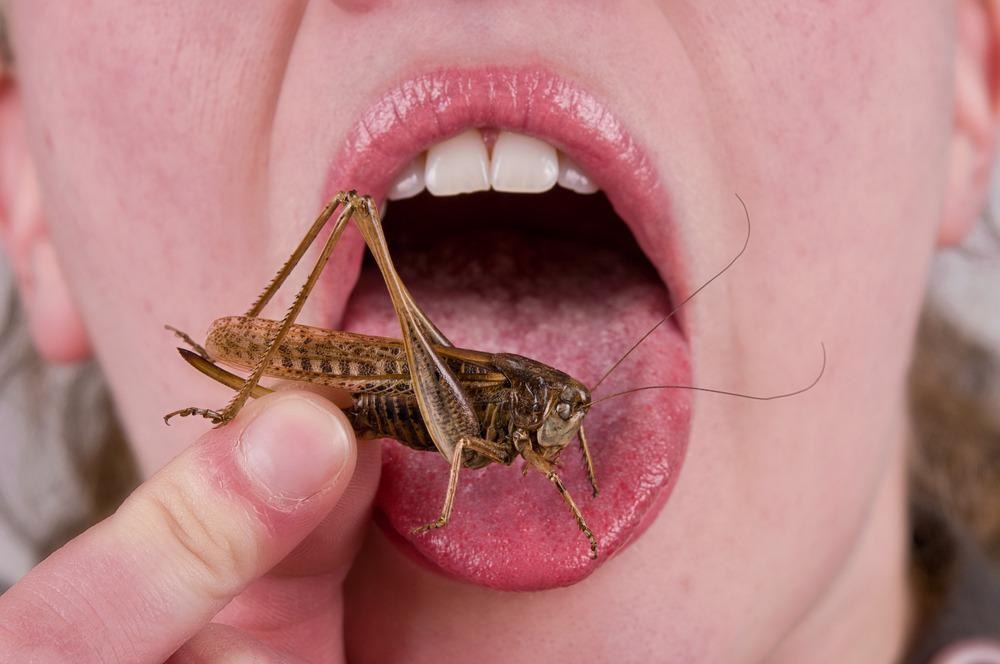Eating insects could be the solution to the looming global food crisis that could see millions go hungry. However, perceptions and farming techniques must be improved before insects can successfully become a staple part of our diets.

Image Credit: Svetoslav Radkov/Shutterstock.com
The world faces an imminent food crisis
The problem of hunger across the globe is worsening. After years of steady decline, the number of people lacking sufficient nutrition rose in 2016, with 815 million people facing hunger. This figure has remained roughly the same since 2016, with 820 million people not having enough to eat in 2018 and 811 million people going hungry in 2020. The global COVID-19 pandemic is predicted to worsen this figure, with an estimated 957 million people expected to go hungry this year.
While the impact of COVID-19 may subside over the coming years, climate change, a major influencer of global hunger levels, is predicted to endure for the foreseeable future. Extreme weather events such as droughts and floods are destroying crops and eroding soil, making crop yields less reliable and of poorer quality. Other factors, such as the increasing global population, changing diets, urbanization, conflict, and economic downturn are also contributing to food insecurity and numbers of those going hungry.
For many years, scientists have been developing new technologies and strategies to target food insecurity, innovations such as edible food stickers that leverage the IoT to prevent food spoilage and waste, smart farming techniques (also known as agriculture 4.0), vertical farming, and bioactive packaging promise to reduce food waste and enhance the quality and volume of food production. Initiatives such as those that limit food waste by selling or sharing food that is close to its sell-by date or deemed too “ugly” for sale are also contributing to boosting food security.
Ensuring that the global population will have access to enough food to eat in the coming years as well as far into the future will require a multi-pronged approach. Innovative technologies and strategies must be combined to target food insecurity at all angles. Now, scientists propose that adding insects to our diets could be a major root to ensuring future food security.
Insects will save the world from hunger?
While insects do not seem that appealing to many people, they may change their minds given the fact that insects have an incredibly high nutritional value as well as a significantly lower carbon footprint than meat production. They are a sustainable source of protein, a vital part of the human diet. Insects could offer a solution to the world’s growing demand for food and protein. However, several barriers must be overcome before insects find their way onto the dinner table.
Firstly, insects are not considered to be a delicious food option. Public opinion of eating insects is still fairly negative. Changing these ingrained perspectives would require large-scale campaigns and educational programs which would likely be costly. Scientists are working on a way around this. Rather than altering public perceptions of eating insects in their full form, as you would with a piece of beef, for example, they are considering how technology could be used to grind up and covert insects into food ingredients, such as flour or powder.
Recent research has shown that millennials are interested in new food products that use insects in a form that is unrecognizable, meaning that insects have a chance to enter our diets as an ingredient, adding a sustainable source of protein and nutrients to food products with a low carbon footprint. The sustainability and low carbon footprint of food products that contain insects would likely enhance consumer interest due to the rising awareness and responsibility consumers have surrounding what they purchase and eat.
Farmer perceptions also pose a barrier to the widespread consumption of insects. In many rural areas where there may, perhaps, be tourist demand for consuming insects, many farmers associate insects with poverty, and farming of these animals has declined in recent years. It is important to also address farmers’ perspectives, as well as consumers’. Education here is key, highlighting the potential for insect farming to bring families out of poverty while providing a sustainable source of nutrition is vital to improving the perception of insect farming.
Finally, while insect farming has a smaller carbon footprint as it requires fewer acres of land, less water and feed to cultivate, and produces fewer greenhouse gases, switching to insect farming is not necessarily simple and may require upfront costs. Further to this, increasing demand for insects before the agricultural infrastructure is properly set up could cause bottlenecks which would cause more issues and prevent insects from being farmed efficiently and sustainably. The technology and infrastructure must be set up before demand booms.
Will you be eating insects soon?
Further Reading